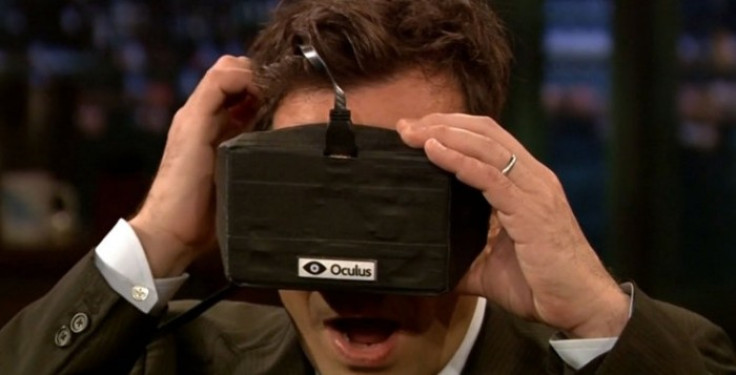Oculus Rift on Facebook Deal: We Didn't Expect Negative Backlash

Oculus Rift founder didn't expect such a broadly negative reaction to Facebook purchasing the virtual reality firm in a deal worth $2 billion (£1.2b).
Speaking to Game Informer, Rift founder Palmer Luckey said Oculus Rift had expected their biggest supporters to react poorly to the news but "beyond our core community, we expected it would be positive. I don't think we expected it to be so negative."
He goes on to suggest that opinion has swayed back toward the positive however. "As people begin to digest it a bit and think about it, you can see that Twitter and Reddit is swinging back the opposite direction. The onus is on us to educate people, and we want to share everything we're doing."
Facebook's deal to buy Oculus Rift and their VR headset technology included $400,000 in cash and $1.6 billion worth of stocks and shares in the social networking company.
Oculus CEO Brendan Iribe also spoke to Game Informer about the company's relationship with Facebook and its CEO Mark Zuckerberg, who had been meeting with him and his team for some months prior to the deal's announcement. "When Mark got in and tried some of the latest demos, he asked, 'What can I do to help? What can Facebook do to help?'"
When a huge tech firm like Facebook offers help, you take it, so many conversations promptly took place to find out an answer to the question Zuckerberg posed. "We put our heads together and it made too much sense," Iribe says.
"If you actually understand [Facebook's] vision of letting us be who we're going to be, just like they wanted to let Instagram be who they are. They want to set a precedent of leaving companies alone, but integrating and being able to allow that company to leverage the momentum and strength and size of Facebook."
Prior to the deal virtual reality technology's resurgence had been due to work in tandem with the world of video games. It's a natural fit, and one that has been attempted (and which failed) before. So when Facebook announced the deal the reaction from many fans was pessimistic.
Better questions arose soon after; "What do Facebook want from the Rift?" and "Does this mean the Rift is moving away from gaming?" Apparently not.
"We have struggled to properly support indie [game developers] because we had to focus our limited resources on our closest partners, that has been a failing that I want to fix," Luckey said on Reddit. "Indie developers are the ones driving this VR revolution more than anyone else, and one of my personal goals has been to support them in a much stronger way.
"Our developer relations/publishing team is really small right now, just a few guys. That is one of the reasons Oculus Share applications have taken so long, they get backed up behind the hundreds of developers we talk to every day."
"We are ramping up our developer relations in a huge way, including investment and publishing efforts," Luckey continues. "We now have the resources to put a lot of money into indie VR content, you will be seeing some good news on that very soon."
© Copyright IBTimes 2024. All rights reserved.






